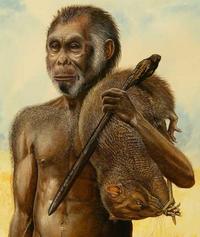Local Boffins Disprove Existence of Hobbits
Roehampton University scientists show species was human
Scientists from Roehampton University have lead a team which have debunked claims that a new species of small humanoid creatures have been found. The discovery of the 18,000 year bones of a small 'hobbit-like' body had led to claims that they represented a different branch of the human family tree.
The species was dubbed Homo floresiensis and the discovery on an Indonesia island was hailed by the scientific community as one of the most significant in recent times. Credibility was added to the claims by local folklore which often referred to 'little men' who lived in nearby rainforests. Such tales are common in folklore across the globe and it is likely that Tolkien derived his hobbits from such sources.
New research has now shown that the skeleton is not a new species but a small bodied modern human who suffered from a condition called microcephaly which results in a small head.
Dr. Robert Martin and Dr. Ann M. MacLarnon of the School of Human & Life Sciences, Roehampton University were the lead authors of the paper and they were assisted by experts from the Universities of Chicago and Illinois.
Dr Martin was quoted as saying, "It's no accident that this supposedly new species of hominid was dubbed the 'Hobbit. It is simply fanciful to imagine that this fossil represents anything other than a modern human."
They combined various disciplines to come up with a series of arguments that most in the scientific community now agree disproves the 'hobbit' theory.
October 19, 2006
Related links
|
